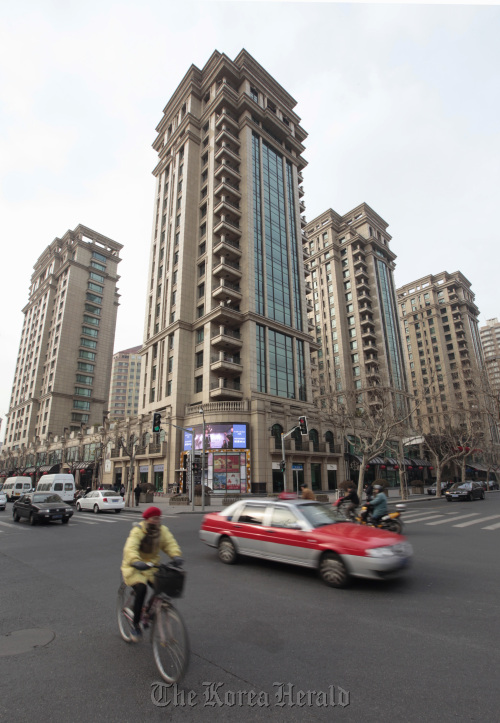BEIJING (AP) ― China on Wednesday unveiled fresh measures to curb property prices, including requiring unruly local governments to set price controls, but made no mention of a widely expected property tax.
City governments must set property price control targets in line with local income levels for 2011 and need to make the targets public in the first quarter, according to a state media report citing a cabinet statement.
“Local governments must shoulder responsibility for the stable and healthy development of the property market,” the radio report said.
China’s municipal governments have a vested interest in the booming property sector, which provides much of their tax revenues.
Banks would require a down payment of at least 60 percent for second-home buyers, up from 50 percent currently, according to the report.
City governments must set property price control targets in line with local income levels for 2011 and need to make the targets public in the first quarter, according to a state media report citing a cabinet statement.
“Local governments must shoulder responsibility for the stable and healthy development of the property market,” the radio report said.
China’s municipal governments have a vested interest in the booming property sector, which provides much of their tax revenues.
Banks would require a down payment of at least 60 percent for second-home buyers, up from 50 percent currently, according to the report.

Lenders will continue to charge “differentiated” interest rates on mortgages. As for second home buyers, the rates should be at least 110 percent of the benchmark rates.
Local residents would be barred from buying a new home if they already own more than two houses.
While the statement did not mention the long-discussed property tax, the government would step up tax collection in the property sector.
“These are unprecedentedly harsh policies, and will definitely weigh down prices,” said Hua Zhongwei, an analyst with Huachuang Securities in Beijing.
“I expect the property tax will be launched soon as well.”
Concerns about further tightening, particularly the property tax, have weighed heavily on the domestic stock market, which has fallen about 15 percent over the past ten weeks.
Despite a slew of measures to target the property sector, however, including higher down payments and mortgage rates, property prices have stayed stubbornly high and property companies have continued to thrive.
SOHO China, a large commercial developer, has seen its shares go up 9.1 percent since the start of the year. Shares of Vanke, China’s largest listed developer, are up 2.9 percent over the same period.
The rules announced Wednesday could be a different story.
“The new measures are very strict,” said Shen Aiqing, a property analyst with GF Securities in Guangzhou. “If property sales plunge, some property developers will definitely run out of cash.”
Banks, including China Construction Bank, Bank of China and ICBC, could also see their profits squeezed as a result of tighter lending.
The cabinet reaffirmed a pledge to build more affordable homes to slake demand from low- and middle-income households.
The country’s leaders, acutely aware of public anger over unaffordable housing prices, have said they would not tolerate property inflation and speculation.
China’s annual property inflation eased to 6.4 percent in December from November’s 7.7 percent, though sequential momentum has remained strong, with prices rising 0.3 percent on a month-on-month basis.
Chinese banks channeled 2.02 trillion yuan in new loans into the property sector in 2010, accounting for a quarter of total new yuan loans, the central bank said on Wednesday.








![[KH Explains] Hyundai's full hybrid edge to pay off amid slow transition to pure EVs](http://res.heraldm.com/phpwas/restmb_idxmake.php?idx=644&simg=/content/image/2024/04/18/20240418050645_0.jpg&u=20240419100350)






![[From the Scene] Monks, Buddhists hail return of remains of Buddhas](http://res.heraldm.com/phpwas/restmb_idxmake.php?idx=652&simg=/content/image/2024/04/19/20240419050617_0.jpg&u=20240419175937)

![[KH Explains] Hyundai's full hybrid edge to pay off amid slow transition to pure EVs](http://res.heraldm.com/phpwas/restmb_idxmake.php?idx=652&simg=/content/image/2024/04/18/20240418050645_0.jpg&u=20240419100350)

![[Today’s K-pop] Illit drops debut single remix](http://res.heraldm.com/phpwas/restmb_idxmake.php?idx=642&simg=/content/image/2024/04/19/20240419050612_0.jpg&u=)